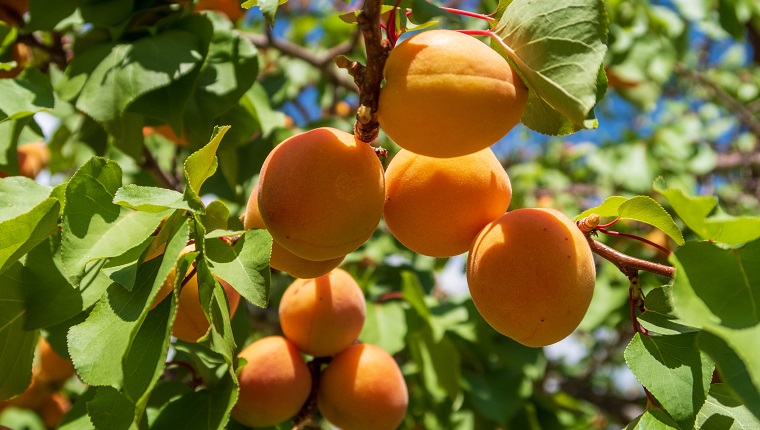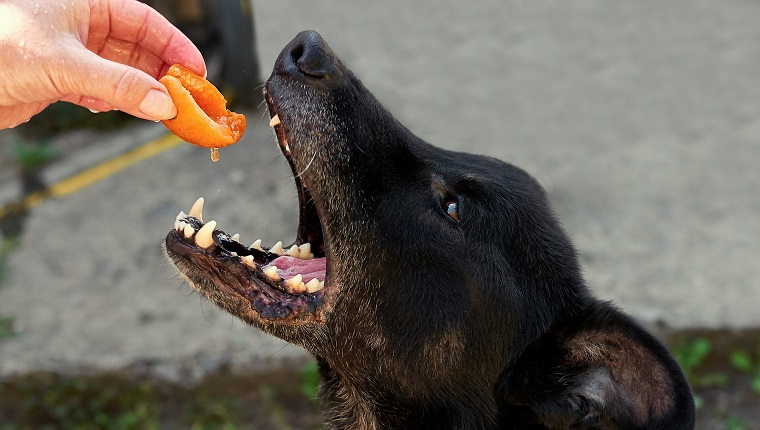Dogs adore sweet and tasty treats, much like their human companions, but can dogs eat apricot? It’s certainly a healthy option for humans, but how healthy is it for our pups?
There’s certainly a good bit of mixed information out there in regards to the fruit and dogs, but we’re here to set the record straight.
Fortunately, the short answer is yes, dogs can eat apricot, but — in moderation. However, it’s imperative to understand that not all parts of the fruit are okay for your dog to eat.
Details like this can make all the difference, and while we’ll elaborate below, you must always ask your veterinarian before sharing human foods with your dog.
Here are a few of the facts, as well as a few suggestions, when it comes to apricots and dogs.
When Is Apricot Safe For Dogs?
With proper preparation and moderation, apricot can be perfectly healthy for our dogs. That being said, though, it is still a sweet treat. Fruits, in general, should never be a significant part of any canine’s diet. Moderation is key.
An apricot is full of healthy fiber, potassium, vitamins, minerals, and other fuel for sustained energy. But too much can lead to digestive upset and great discomfort for your dog. Fiber and sugar, for instance, are problematic for dogs when ingested in large quantities.
When it comes to raw versus dried apricot, the dried variety is healthier and safer. The dried fruit is clear of the stem, pit, and leaves, which are toxic to dogs.
However, when any fruit is dehydrated, its contents are concentrated, making it even more important to provide only small pieces as treats to your dog.
Still, though, it can be a healthy alternative to the overly processed dog biscuits. Just check on the sugar content when hunting for go-to brands, and steer clear of mixes.
What Parts of Apricot Are Unsafe for Dogs?

To address the negative side of apricot, we must hone in on the stems, pits or stones, and leaves of the fruit. All three contain cyanide, which is completely toxic to dogs.
When your dog ingests these parts of the apricot, acute cyanide poisoning comes quick. According to the Merck Veterinary Manual, the onset is as soon as 15 to 20 minutes after consumption.
Cyanide blocks a vital enzyme in dogs that carries oxygen through their bodies, which means that if you have apricots in-house or on the property, you must be vigilant.
Symptoms include panting, tail-tucking, dilated pupils, extreme lethargy, loss of consciousness, collapsing, and drooping ears. If apricots are around, train your dog away from where they are and/or keep them sealed to minimize incidents.
As always, if you think exposure to cyanide is possible, consult your veterinarian immediately.
Has your dog ever tried a bit of apricot? Did they like it? Let us know in the comments below.









